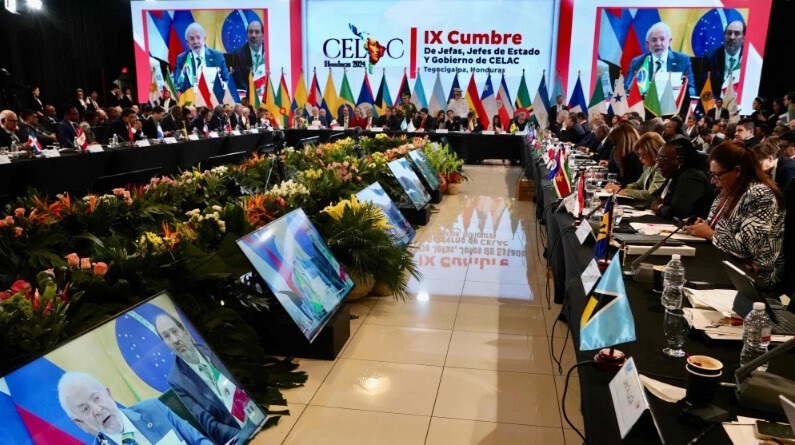
The Paraguayan government, through its Ministry of Foreign Affairs, has rejected and condemned what it claims were serious procedural violations in the adoption process of the final declaration of the IX Summit of CELAC (Community of Latin American and Caribbean States) held in Honduras. The declaration contains opposition from 30 of the 33 member states to the tariffs imposed by US President Donald Trump.
In a statement published on its official website, the Paraguayan Ministry of Foreign Affairs outlined its position regarding the outcome of the CELAC Summit, noting in a letter addressed to the Ministry of Foreign Affairs and International Cooperation of Honduras, the pro tempore presidency of CELAC, that there was no consensus reached on the final declaration as asserted by Honduran President Xiomara Castro.
According to the letter, Paraguay "expresses its strongest discomfort with the regrettable events that occurred during the Summit, specifically the evident procedural violation by the pro tempore presidency of CELAC in announcing the Tegucigalpa Declaration as approved by 31 member states, and reserves its consent to the adoption of said document."
The Paraguayan government does not agree with the content of the declaration, which was supported by 30 of the 33 member states and states that it "rejects unilateral coercive measures contrary to international law, especially restrictions on international trade."
The Foreign Ministry stated that both Argentina and Paraguay opposed the declaration, while AFP news agency reported that Nicaragua also expressed the same position.
Paraguay rejected the concept of "sufficient consensus" described in Honduras as non-existent in international law and demanded amendments that clearly reflected Paraguay's position.
"This declaration cannot be considered a result of the IX CELAC Summit," the Paraguayan Foreign Ministry emphasized in its statement.
The international meeting, meanwhile, concluded on Wednesday night with a pledge of unity from Latin American and Caribbean nations against the trade war initiated by US President Donald Trump.
[Copyright (c) Global Economic Times. All Rights Reserved.]




























